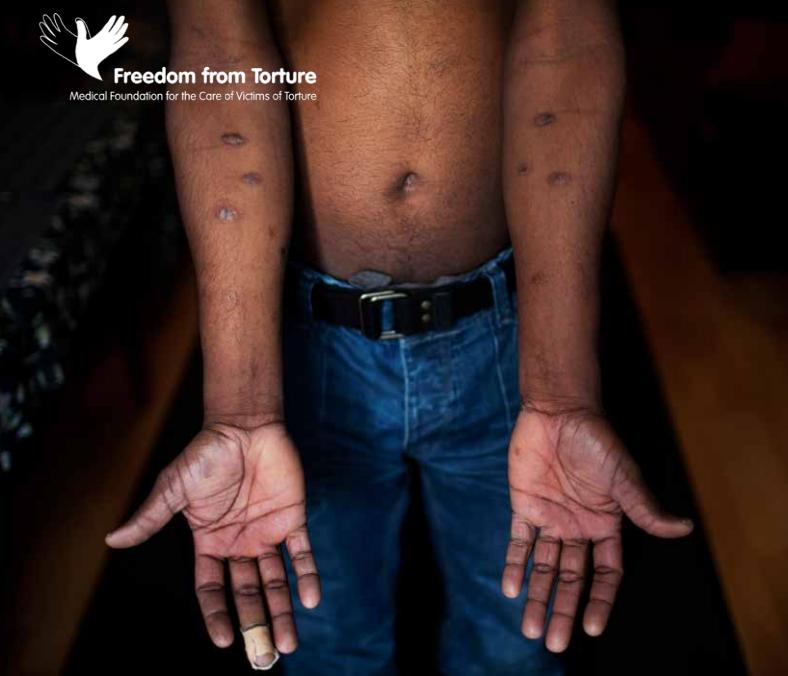 Photograph: Will Baxter/Freedom From Torture |
Tamil torture victims who suffered at the hands of the Sri Lankan government called on the UN Human Rights chief to ensure that an “internationalised justice process” takes place, ahead of his visit to the island this week.
In a report by UK-based charity Freedom From Torture and the survivor activist network Survivors Speak OUT, victims called on UN High Commissioner for Human Rights Zeid Ra’ad Al Hussein to “deliver a strong message to the President and Prime Minister about the need for Sri Lanka to comply with the commitments it made to the UN Human Rights Council and the consequences if it fails to do so” during his visit to the island.
 |
“It is imperative that the UN High Commissioner for Human Rights gets the justice deal back on track," said Sonya Sceats, Director of Policy and Advocacy at Freedom from Torture.
"The agreement was struck by the new Sri Lankan government at the UN just a few months ago.”
The torture survivors also called on the High Commissioner to “visit Jaffna, the Vanni and Batticaloa to speak, without any interference by the military, with people who are still affected by the legacy of the conflict and ongoing repression”.
 |
 |
The survivors were also wary that Sri Lankan President Maithripala Sirisena was attempting to protect those who were responsible for violations of humanitarian law, noting that he himself held senior government positions during the armed conflict.
“Such is their despair with the domestic justice system in Sri Lanka that survivors of torture are adamant that they will only support an internationalised process,” said Ms Sceats.
“Those we have been talking to at Freedom from Torture suggest that half the judges should be international and half of the domestic judges should be chosen by the Tamil community.”
 |
“Among the other factors set out, these survivors are clear that for the process to be credible and for it to contribute to long-term peace and stability in Sri Lanka, the participation of international judges is non-negotiable,” said the report.
“Sri Lanka is at a crossroads in the quest for justice for torture and other serious human rights abuses,” commented Ms Sceats.
“The new government recognises that accountability is essential to reconciliation and lasting peace. To get this right and deliver stability throughout the country, they must listen to the survivors.”
See the full report here.
